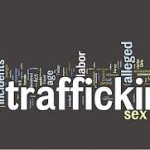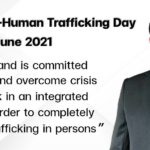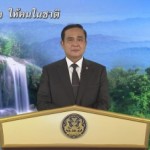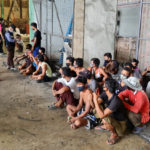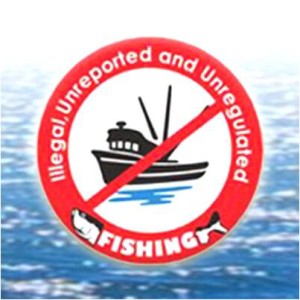
The same week that the European Union threatened to sanction Thailand over illegal, unregulated and unreported (IUU) fishing, Indonesia, one of the countries most affected by that problem, agreed to form a joint task force with Thailand to tackle the issue and praised Thailand’s efforts to regulate and monitor its fishing fleets, saying the Thai government is truly committed to solving the problem.
Seafood exports are a major earner of foreign exchange for Thailand, reeling in about $7 billion last year, and Thailand’s private-sector fishing fleet is one of the largest in the Asia-Pacific region. But the industry has been plagued by problems with IUU fishing and human trafficking. Since assuming power last May, the government of Prime Minister Prayut Chan-o-cha has taken more steps to combat both problems than any of its predecessors. But the long years of inaction and the regional nature of the issues mean that it will take time, cooperation and sustained commitments before IUU fishing and human trafficking can be truly eradicated.
The proposal to form a joint task force to address IUU fishing was made by Prime Minister Prayut to Indonesian President Joko Widodo on the sidelines of the Asian-African leaders summit in Jakarta last week. Under Widodo, Indonesia has taken a hard line against IUU fishing. An archipelago with the second-longest coastline in the world at 34,000 miles, Indonesia has suffered at the hands of foreign fishing fleets encroaching on its territorial waters and robbing its marine resources. Recently, Indonesian authorities have begun seizing trawlers that violate the country’s waters and sinking them.
Indonesian Foreign Ministry Spokesman Arrmanatha Nasir said the meeting between the two leaders was "friendly" and both acknowledged more needed to be done. “Both leaders are going to set up a taskforce to address this issue,” he said.
Indonesia’s Coordinating Maritime Affairs Minister Indroyono Soesilo said, “Thailand has shown a strong commitment to dealing with illegal fishing,” after learning of Prime Minister Prayut’s order that 7,000 Thai fishing vessels install tracking systems to allow authorities to monitor their positions.
The two countries are expected to sign a memorandum of understanding to cooperate on fisheries in coming days. Prime Minister Prayut said that he hoped the European Union would show some patience with Thailand, as his government has only begun implementing new policies on IUU fishing and human trafficking within the last few months, and that results would take time to show. As the industry is of vital economic importance to Thailand, his government is committed to cleaning up abuses and making fisheries more sustainable.
Four ASEAN countries — Indonesia, Thailand, Vietnam and the Philippines — are among the world’s ten-largest fish producers. Combined, all 10 ASEAN members account for a quarter of global fish production.
Indonesia is the largest fish producer in the region, but its officials say about 5,000 foreign fishing vessels are operating illegally in its waters. While Indonesia earned $23 billion from its fishing industry last year, it claims it is losing $20 billion in marine resources to foreign poachers every year.
For more information and updates about Thailand's policies and actions against trafficking in persons and related issues, visit www.thaianti-humantraffickingaction.org

